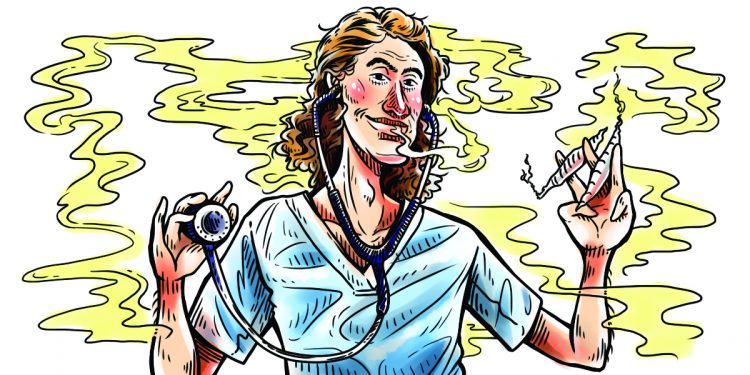By Dr. Dank
Dope Columnist

Medical marijuana has finally taken root and sprouted in Texas. On Sept. 1, the Texas Department of Public Safety licensed the first company to grow marijuana with low levels of tetrahydrocannabinol, or THC, and high amounts of cannabidiol, or CBD, for epilepsy patients, according to a statement by DPS.
THC produces the high marijuana users experience, but CBD does not, according to medicaljane.com.
Senate Bill 339, also known as the Texas Compassionate Use Program, was signed into law in 2015 by Gov. Greg Abbott. The program allows the growth of high-CBD marijuana and the prescription of it to epilepsy patients. However, a patient can only be prescribed CBD after two federally approved drugs have not worked. Doctors must also seek proper licensing with DPS to fulfill a prescription, according to The Texas Tribune.
Smoke and mirrors
This is the first legislation regarding legal marijuana in Texas and could lead to further decriminalization of the plant. However, advocates say the Texas Compassionate Use Program has too many limitations.
“It’s almost as if Gov. Abbott, after he signed it … immediately regretted it and said, ‘How can I sabotage this thing so nobody can do it?’” Dr. Lang Coleman, a retired neuropsychologist and medical marijuana advocate, said in an interview with KSAT 12, a San Antonio-based news station.
Dazed and confused
“This is kind of a bittersweet time for those of us who are advocating for reform,” Heather Fazio, a spokesperson for Texans for Responsible Marijuana Policy, said. “We’re happy the process is moving along, but it’s such a limited program, and we know there are so many other people who could benefit from this if the program was more inclusive.”
Companies must pay a startup fee of over $400,000 just for the license and a renewal fee exceeding $300,000 every two years, according to The Texas Tribune. Cansortium Texas is the first company to receive its license to grow medical marijuana in Texas. Two more companies are expected to receive licenses soon, according to The Fort Worth Star-Telegram.
Surterra Texas and Compassionate Cultivation are next in line to receive licenses. They are currently in the final review stage with DPS, according to The Texas Tribune.
“We expect to have the medicine by the end of this year, I hope by December,” Jose Hidalgo, chief executive officer of Cansortium Holdings, said. “Our focus is to give access to patients.” Cansortium Holdings is the Florida-based parent company of Cansortium Texas.
Does the program need room to grow and improve?
I think so. I also believe marijuana policy will be shaped by the success of this program because it is a written law.
CBD is already being sold in Texas. CBD in oil derived from hemp is legal to sell, according to the Texas Hemp Industries Association. Sales are allowed under the 2014 Farm Act, a federal piece of legislation allowing the production and sale of industrial-grade hemp.
Hemp contains extremely low levels of THC and, like marijuana, its sister plant shares all sorts of cannabinoids that can affect the human endocannabinoid system – the part of the brain cannabinoids trigger – according to The Austin Chronicle.
I believe the CBD to be sold under the Texas Compassionate Use Program will be stronger than what’s currently available because it’s being grown for a specific reason and will be state-regulated. But there is no way to know yet.






